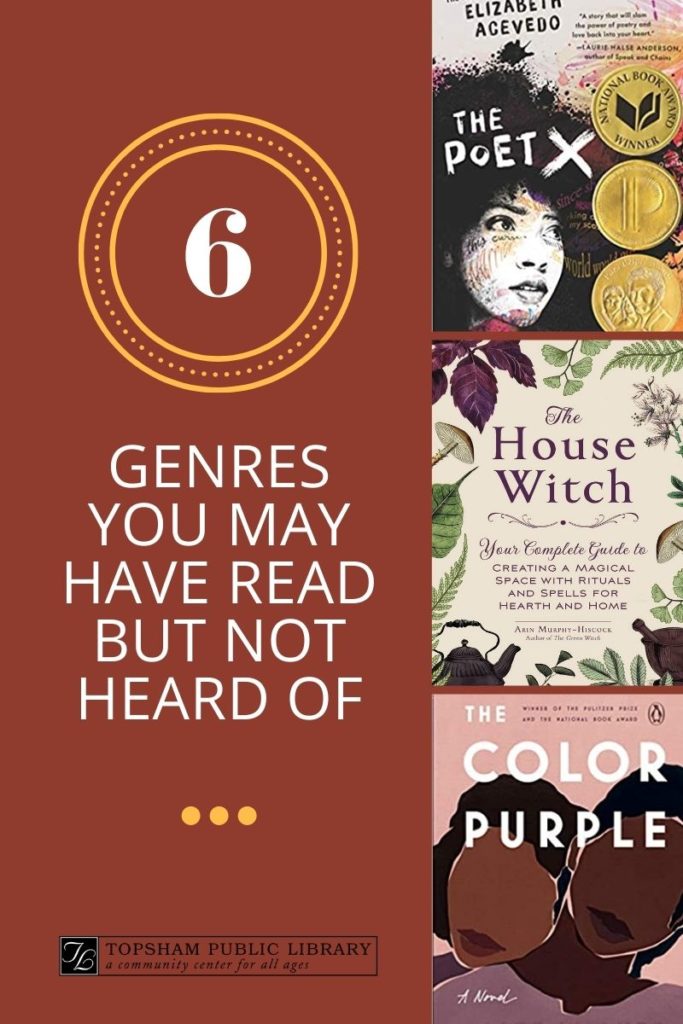A search on genres of literature will get you a multitude of responses: what the main genres are, how many main genres there are, whether or not there are sub-genres or only categories of main genres. The perspective of the TPL librarians? Genres and various sub-genres can be very helpful in identifying your interests and finding your next read (but do not feel limited by them).
Whatever your opinion on the matter may be, here are 6 sub-genres you may have read but haven’t heard of…
Cli-fi: Cli-fi stands for climate fiction and is literature that deals with the effects of climate change on human society. It has been growing in popularity, especially among high school and college-age readers, and there are many colleges now offering cli-fi courses. There’s a good selection to choose from here.
Bildungsroman: These are coming of age stories – bildungsroman (German) is a compound of the words bildungs, meaning “building or formation”, and roman meaning “a novel”. (source) Chances are you have read at least a few of these novels. To Kill a Mockingbird, The Catcher in the Rye, Little Women, and The Alchemist are some examples.
Mannerpunk: A cousin of steampunk, mannerpunk is a subgenre of fantasy literature that takes place within an elaborate social structure and resembles a comedy of manners. The Night Circus by Erin Morgenstern and Stardust
by Neil Gaiman are two examples that might be familiar to you.
Grimoires: Though perhaps not exactly a literary (sub)genre, grimoires—manuals of magic or witchcraft— has had a recent resurgence can be found on the shelves of many a witch, sorcerer, or amateur spell caster. (source) We have several in our collection.
Epistolary: An epistolary novel is a story told exclusively through fictionalized letters, emails, newspaper articles, and other primary sources. The form experienced a popularity surge in the mid-1700s, and it has since structured some of the most beloved books in the English language, such as Dracula and The Color Purple.
Verse Novel: Fiction novels are usually written in prose (verbal or written language that follows the natural flow of speech). Verse novels tell a story, with the character development and narrative structure of novels, but in the form of long poetry. It does not have to rhyme but it does often have a cadence and/or use other poetic devices. You’ll find some examples here.
There you have it – some familiar titles that fall under some less familiar categories. Do you have a favorite genre or sub-genre? Let us know in the comments.

